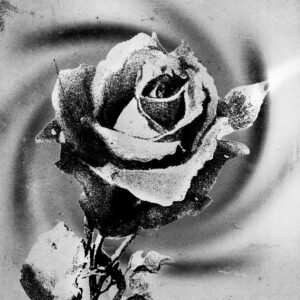I had watched My Dinner With Andre the spring after turning 16. The nervous young woman with only partially grown-out bangs feels less familiar now. She was forever changed. I vowed after my viewing that I’d never watch it again until, I figured, when I was about 30 and I’d come to understand life. Maybe I had missed the point altogether.
In My Dinner With Andre, we meet struggling playwright Wallace Shawn as he travels through New York side streets and subway tunnels on his way to a dreaded dinner with an old friend and valued colleague, Andre Gregory—both of whom are playing themselves. An internal monologue explains the anxiety: rumour has it he had suddenly abandoned the theatre years ago to travel Asia and found enlightenment. A shared friend of theirs even confessed Gregory was found crying, curled up against a building, emotional after viewing Autumn Sonata at the cinema some blocks down.

Arriving at the restaurant, skeptical, Shawn dresses himself in a tie before entering and waits with a Perrier—no club soda available—for his dinner mate.
Gregory arrives polished and well-mannered. A quick greeting and small chatter inaugurates their reunion and a conversation begins, first with a saga of stories stacked upon themselves, burning dazzling, vivid images into the mind of the audience.
Recounts of the marvels Gregory had found in the Sahara desert, on bountiful English commune farms, with Tibetan monks, with floral-eyed creatures fill the space between them. Wows and ohs wedge into his sermon and grow only more tense.
The premise of My Dinner with Andre may be a simple one; for the most part the entire film takes place within the restaurant. But the movie (written by Gregory and Shawn, and directed by Louis Malle) poses—or forces, rather—the self-reflection we so desperately hide from. Questions we carefully choose to leave unanswered stare viewers in the face. What is a connection? What is pleasure? How do experiences define us?
Bubble-ups of conflicting philosophies spill onto the white tablecloth as Shawn admits his pleasure is a coffee left untouched by insects. A careful dance of dialogue fills this corner of the restaurant, although neither is wrong. It’s a conflict that begs for connection, yet features that very subject. My Dinner With Andre intimately confronts what makes us human in many ways: the same crumbling egos uncertain of both coffee and Tibet.
And so we end the same way we began, passing cars on New York cement, now with Erik Satie’s first Gymnopédie and the remnants of our dinner with Andre still ringing in our ears.
4.5/5
